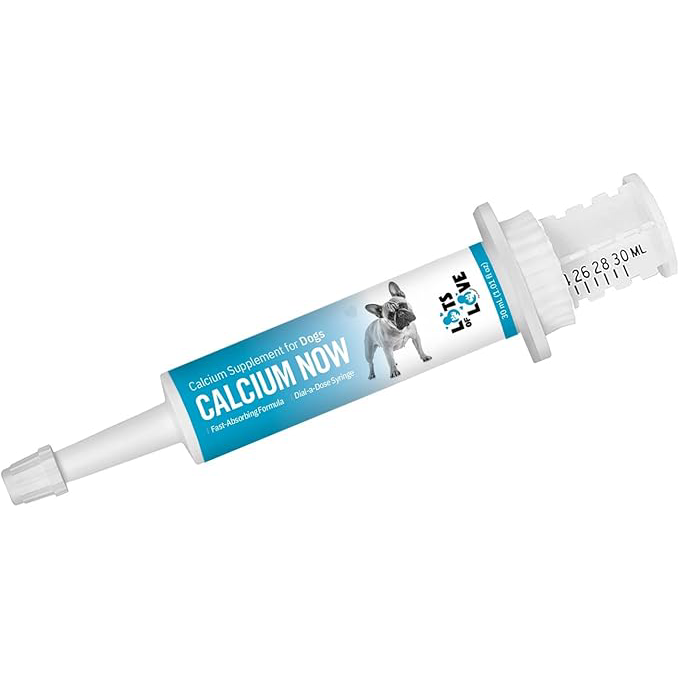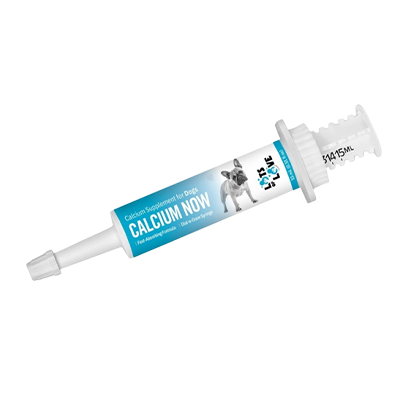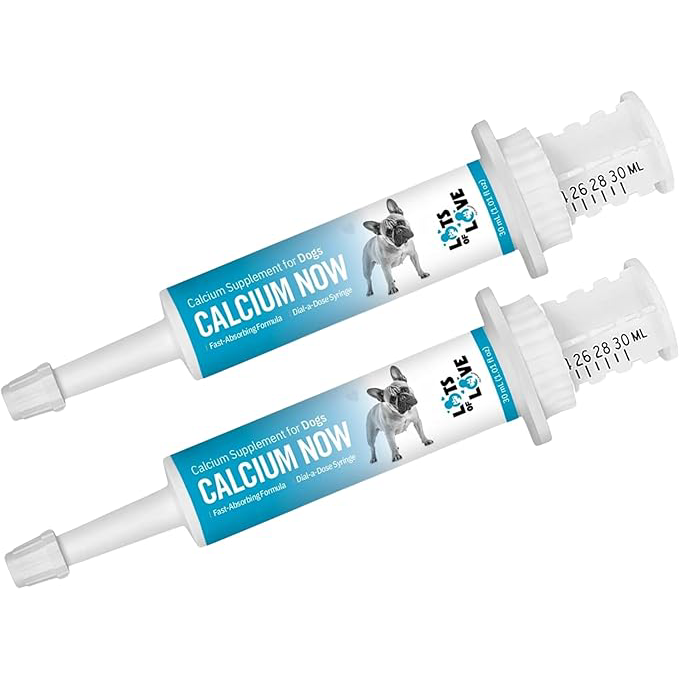Calcium is the most important dietary mineral for dogs, it plays an essential role in bone and teeth formation, nerve impulse transmission, cell signaling, muscle contraction, and blood clotting.
Ensure that your dog receives enough calcium which is vital for overall health. Lack of calcium can lead to bone and health issues like hypocalcemia. However, excessive amounts of calcium doses can also lead to health ailments, such as kidney failure and hypercalcemia.
Calcium contributes to healthy bones and teeth, muscle building and function, a strong heart, and a healthy nervous system. Dogs, like other animals and people, do not produce vitamins and minerals naturally. This means that they have to get calcium through their diets.
Optimal calcium calculations in the diet of your pet are most important. One can contact a veterinarian to know how much of the supplements is ideal for their pet’s health.
Calcium supplements are often recommended for dogs to address their calcium deficiencies. There can be multiple reasons for the Deficiencies such as homemade diets or during pregnancy, whelping, or nursing period.
Supplementing a Homemade Diet
Dogs on homemade diets may not get enough calcium, leading to secondary hyperparathyroidism. According to the National Research Council, this problem has long been recognized in dogs who are fed primarily with meat-based diets and results in significant bone loss, fractures, and skeletal abnormalities.
Raw food or homemade diets may lack adequate calcium since meat, vegetables, and grains are naturally deficient. Therefore, calcium supplements are often recommended for dogs on these diets to ensure proper calcium balance.
If your dog is on a well-balanced commercial diet, additional calcium supplements are usually unnecessary as these diets already contain the recommended daily calcium for dogs.
During Pregnancy
Calcium demand increases during pregnancy due to mammary gland development and fetal needs. This demand continues through whelping and lactation. The parathyroid gland regulates blood calcium levels, drawing calcium from bones if necessary. Insufficient dietary calcium can lead to bone and health issues like eclampsia.
Supplementing with calcium before whelping is not recommended as it can increase the risk of eclampsia. However, fast-absorbing calcium during early labor can be beneficial, aiding cervical dilation, providing energy, and supporting effective contractions.
Treating and Preventing Eclampsia
Calcium requirements rise during pregnancy and nursing. Insufficient calcium during nursing can lead to eclampsia, a life-threatening drop in blood calcium. Calcium supplements may be necessary to treat or prevent eclampsia in dogs.
A dog or cat with eclampsia should receive long-term maintenance with oral vitamin D and calcium throughout lactation. Dogs that have had eclampsia are likely to experience it in future pregnancies. To prevent this, oral calcium supplementation is often recommended immediately after whelping and throughout lactation.
Choosing the Right Type of Calcium
The Merck Veterinary Manual suggests calcium carbonate for treating eclampsia due to its high elemental calcium content, availability, and lack of gastric irritation. VCA Animal Hospitals notes that calcium bound to lactate, citrate, ascorbate, and other organic acids is more easily absorbed.
That's why Lots of Love Pet Products offers Calcium Now (Earlier Thomas Labs Calcium Now), featuring three forms of calcium for optimal pet health, fortified with magnesium and vitamins B6, C, and D3 to support calcium absorption. Learn more about Calcium Now's ingredients and how they work together for maximum benefit at our site. If you want to buy it for your dog, shop at our Amazon Store.
The information provided here is not a substitute for professional veterinary advice. Consult your veterinarian for medical questions regarding diagnosis, treatment, or medical care.

 DOG BREEDING SUPPLEMENTS
DOG BREEDING SUPPLEMENTS DOG DIGESTIVE SUPPLEMENTS
DOG DIGESTIVE SUPPLEMENTS EYE & EAR DROPS
EYE & EAR DROPS SKIN & COAT SUPPLEMENTS
SKIN & COAT SUPPLEMENTS CAT SUPPLEMENTS
CAT SUPPLEMENTS






